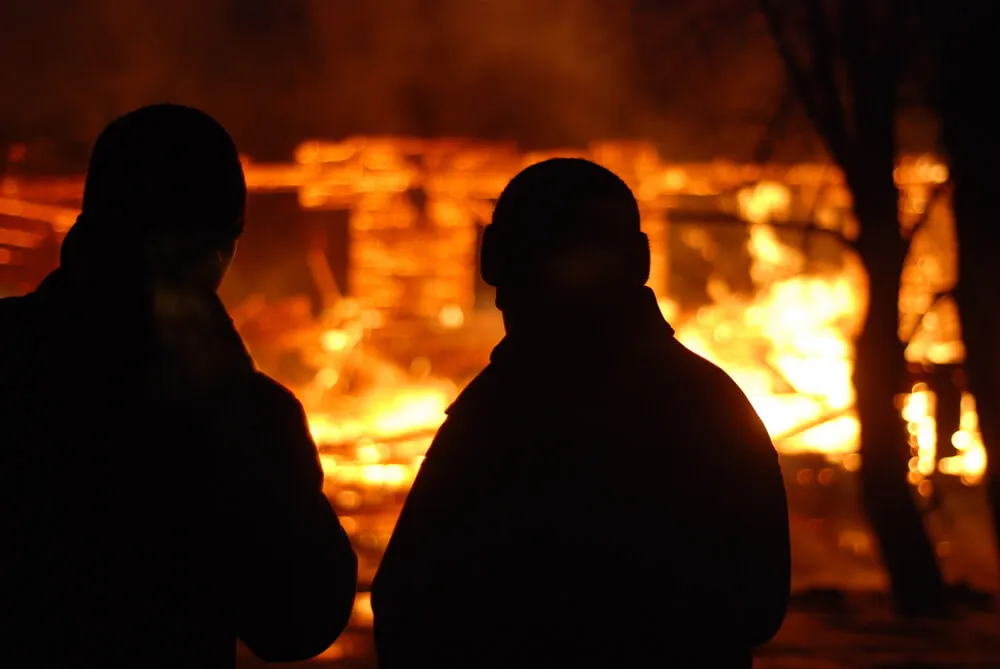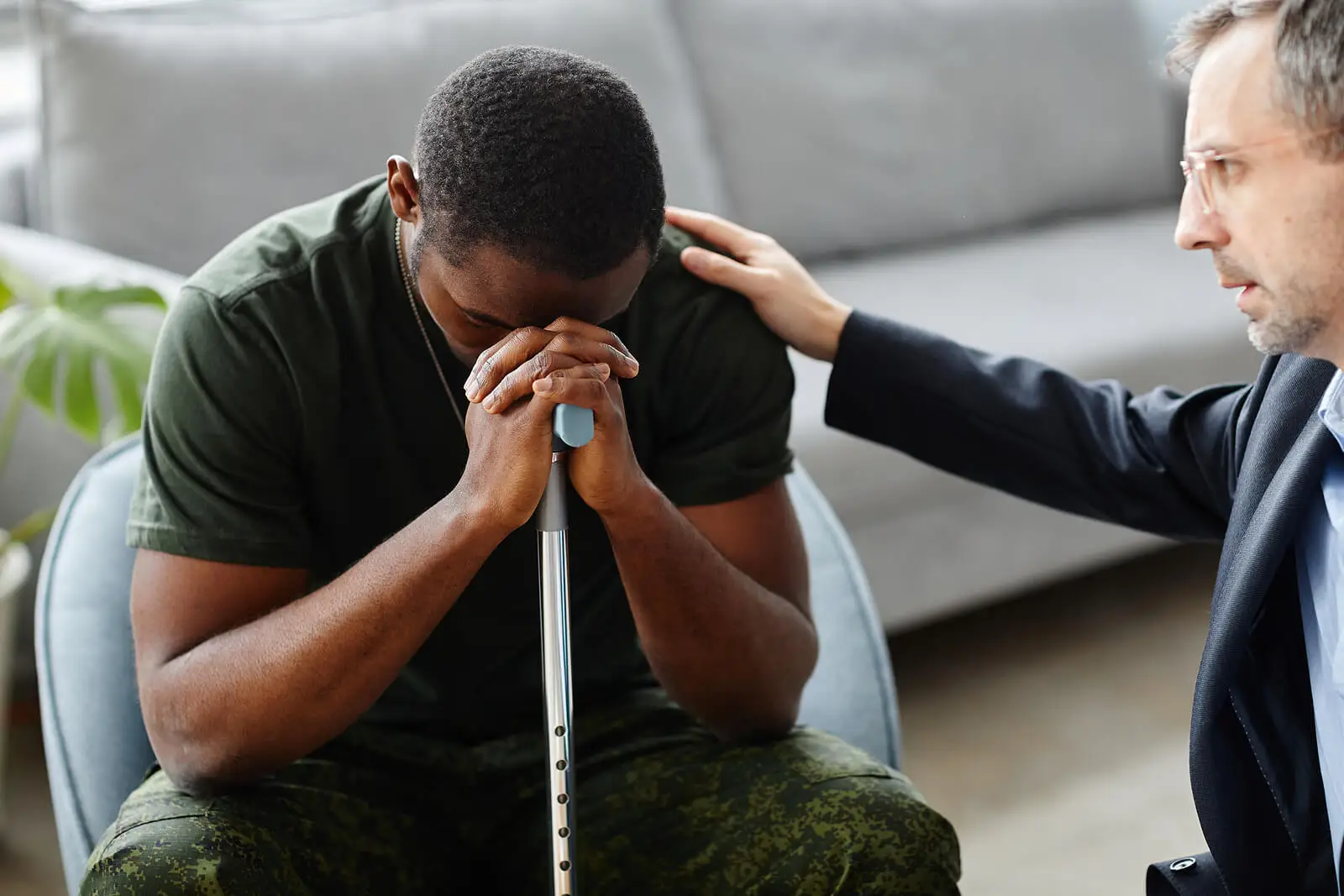Emergency Psychologists: Learn Their Important Role


Written and verified by the psychologist Maria Fatima Seppi Vinuales
When we think of disaster situations, we must also think of the possibility of psychological trauma. These are exceptional situations that alter the daily course of things. That’s why the role of emergency psychologists is so essential.
Their role is to contain what others are feeling and to be the “thinking head” that helps to organize and organize. Let’s see what their other functions are.
The importance of the emergency psychologist
Emergency psychologists are the ones who provide psychological first aid. The response capacity and the attention that a person receives as soon as an impact occurs is fundamental for his or her subsequent recovery.
Hence the importance of the role of the emergency psychologist. In the first instance, he/she ensures the safety and containment of the victims.
In a second instance, he/she offers the space for them to connect with their own personal coping resources. At the same time, it’s a facilitator of the mourning process, whatever the cause (loss of a loved one, of material goods, uprooting). Especially in those cases in which defenses such as avoidance or denial are activated.

Among the main functions and objectives of its task, we find the following:
- Reduce the initial level of stress caused by the trauma.
- To offer security in multiple ways. For example, stabilizing those who are in shock, helping to move the person away from the disaster area, and attending to the basic needs of hunger, thirst, hygiene, and shelter.
- Helping to make decisions, organize and find solutions.
- Assess the needs and psychoemotional impact of the victims.
- Facilitate recovery and subsequent rehabilitation.
- Evaluate the existence of a support and containment network, recommending spaces and resources for this purpose.
- Encourage adaptation to new circumstances.
- To promote coping strategies. In this way, people are encouraged to regain control over their lives.
- Analyze the situation of the victims and anticipate prognoses and scenarios. If necessary, propose a follow-up.
We think you may also enjoy reading this article: 7 Reasons You Should Visit a Psychologist
What do emergency psychologists do?
First of all, an emergency psychologist acts from serenity and calm. Although he/she is a person and has emotions, he/she learns to manage them so as not to overload the critical moment with tension.
He/she even maintains temperance in those cases in which there are “overwhelmed” people. Self-control and a strong sense of vocation are essential qualities in the work of these professionals.
On the other hand, he also acts in a measured manner. They’re capable of offering help, but also of respecting privacy, of being close without invading.
They work with empathy, adapting to different situations. In other words, he/she is able to identify who is the person to be assisted. The needs of a child or an elderly person in a disaster are not the same.
He/she is also capable of reading the society in which he/she provides assistance. There are some cultures in which some practices or suggestions would not be accepted.
An emergency psychologist works by listening, and attending to concerns and worries. He/she does not make false promises, but neither does he/she offer a categorical “no” to requests.

4 key actions of an emergency psychologist
We can say that the actions of an emergency psychologist can be summarized in 4 actions:
- Prepare: he/she gets information about what has happened and looks for resources (brochures, recommendations from assistance centers, governmental aid) that can help in the response.
- Observe: perform a general analysis of the situation and adapt. It also observes individual and group behaviors. Seeks to promote people’s safety. Facilitates emotional comfort and a sense of protection.
- Listening: seeks to be attentive to needs, and validates emotions and responses. Non-judgmental. Explains to people that all reactions are “normal” and invites them to express themselves freely. Point out that what is “abnormal” or exceptional is the emergency or disaster situation.
- Connect: asks the person by name and refer to him/her by that name. Demonstrates empathy, and acts in a service-oriented manner. He or she helps the victim to focus on the present moment, trying to alleviate future worries. Promotes a climate of trust.
Like this article? You may also like to read: Why Is It Important to Develop Self-Awareness?
Emergency psychologists: Caring for caregivers
A very important aspect to highlight is that emergency psychologists are dedicated to caring for people in times of great stress. Therefore, their daily task oscillates between adrenaline and extreme situations.
In this sense, it’s necessary to resort to the idea of “caring for the caregivers” to prevent burnout syndromes. These consist of extreme exhaustion, due to a situation of sustained stress for a prolonged period of time.
We can take as a close reference the burnout suffered by health personnel during the pandemic. It was an unprecedented circumstance, which occurred on a planetary scale, persistent and with little knowledge and certainty about how to act. Its consequences are still visible in situations of anxiety, anguish, and unresolved grief.
It’s necessary to provide spaces for rest and self-care, opportunities for support, and containment for those who perform this task. Otherwise, we run the risk of them feeling depersonalized.
All cited sources were thoroughly reviewed by our team to ensure their quality, reliability, currency, and validity. The bibliography of this article was considered reliable and of academic or scientific accuracy.
- Figueroa, R. A., Marín, H., y González, M. (2010). Apoyo psicológico en desastres: Propuesta de un modelo de atención basado en revisiones sistemáticas y metaanálisis. Revista Médica de Chile, 138 (2), 143–151.
- Sandoval-Oband, Eduardo Enriqu, & Pavon-Cuellar, Katherin (2020). Psicología de la emergencia en contexto de pandemia: aportes y herramientas para la intervención psicológica. Tesis Psicológica, 15(2),1-22.[fecha de Consulta 15 de Septiembre de 2022]. ISSN: 1909-8391. Disponible en: https://www.redalyc.org/articulo.oa?id=139069262015
- Barrales Díaz, Claudio. (2019). Atención psicológica en situaciones de emergencias y desastres. Horizonte sanitario, 18(1), 5-6. Recuperado en 16 de septiembre de 2022, de http://www.scielo.org.mx/scielo.php?script=sci_arttext&pid=S2007-74592019000100005&lng=es&tlng=es.
This text is provided for informational purposes only and does not replace consultation with a professional. If in doubt, consult your specialist.








